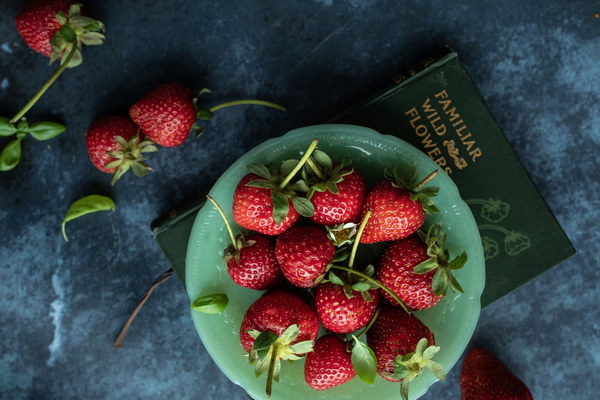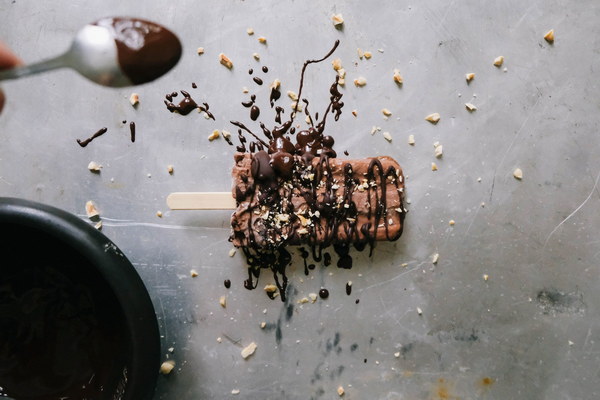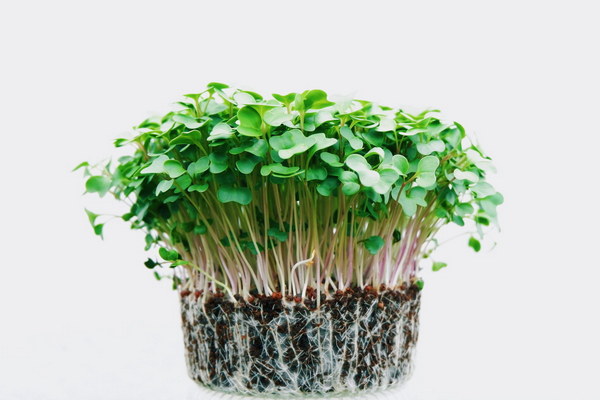Unlocking Nature's Secret How Ginger Tea Can Banish Dampness and Revitalize Your Health
In the realm of traditional Chinese medicine, the power of ginger (Zingiber officinale) is often praised for its myriad health benefits. One such benefit is its ability to expel dampness from the body, a concept deeply rooted in Chinese herbalism. Dampness is believed to be a common cause of various health issues, including fatigue, joint pain, and digestive problems. This article delves into the science behind ginger's dampness-busting properties and offers a simple yet effective ginger tea recipe to help you stay healthy and vibrant.
Understanding Dampness in Traditional Chinese Medicine
In traditional Chinese medicine (TCM), dampness is an imbalance of fluid in the body, which can be caused by various factors, including diet, environment, and stress. When dampness accumulates, it can lead to a host of health problems. TCM practitioners believe that ginger can help to alleviate dampness by warming the body and promoting the flow of fluids.
The Science Behind Ginger's Dampness-Busting Powers
Modern science has started to uncover the mechanisms behind ginger's effectiveness in treating dampness. Here are some of the key components and their effects:
1. Gingerols: These compounds are responsible for ginger's warming effect and anti-inflammatory properties. They help to improve blood circulation and reduce the accumulation of dampness in the body.
2. Shogaol: A derivative of gingerol, shogaol has been shown to have strong anti-inflammatory effects, which can help alleviate joint pain and other symptoms associated with dampness.
3. Phenolic Compounds: These compounds have antioxidant properties, which can help protect the body from free radicals and reduce the risk of chronic diseases.
Ginger Tea Recipe: A Natural Remedy for Dampness
To harness the power of ginger in fighting dampness, you can prepare a simple and delicious ginger tea. Here's a step-by-step recipe:
Ingredients:
- 1-2 slices of fresh ginger root
- 1 cup of hot water

- Optional: honey, lemon, or mint leaves for flavor
Instructions:
1. Peel and Slice: Start by washing the ginger root and removing any dirt or impurities. Then, peel the skin and cut it into thin slices.
2. Boil Water: Pour one cup of hot water into a teapot or mug.
3. Add Ginger: Place the sliced ginger into the hot water.
4. Steep: Let the ginger steep for about 10-15 minutes. The longer you steep, the stronger the tea will be.
5. Strain: Once the tea has steeped, strain it to remove the ginger slices.
6. Flavor: Add honey, lemon, or mint leaves to enhance the flavor if desired.
7. Enjoy: Sip your ginger tea slowly and enjoy the warm, soothing sensation as it helps expel dampness from your body.
Incorporating Ginger Tea into Your Daily Routine
To effectively use ginger tea as a dampness-busting remedy, consider incorporating it into your daily routine. Here are a few suggestions:
- Morning Ritual: Start your day with a cup of ginger tea to warm your body and boost your metabolism.
- Digestive Aid: Drink ginger tea after meals to aid digestion and prevent the buildup of dampness in the digestive system.
- Stress Relief: Sip on ginger tea when you're feeling stressed, as its warming properties can help relax the body and mind.
- Seasonal Support: In damp weather, drink ginger tea more frequently to help combat the accumulation of dampness in the body.
In conclusion, ginger tea is a natural and effective way to expel dampness from the body, according to traditional Chinese medicine. Its warming properties, along with the anti-inflammatory and antioxidant effects of its compounds, make it a valuable addition to your wellness routine. So, the next time you're feeling the effects of dampness, reach for a cup of ginger tea and let nature's secret work its magic.









